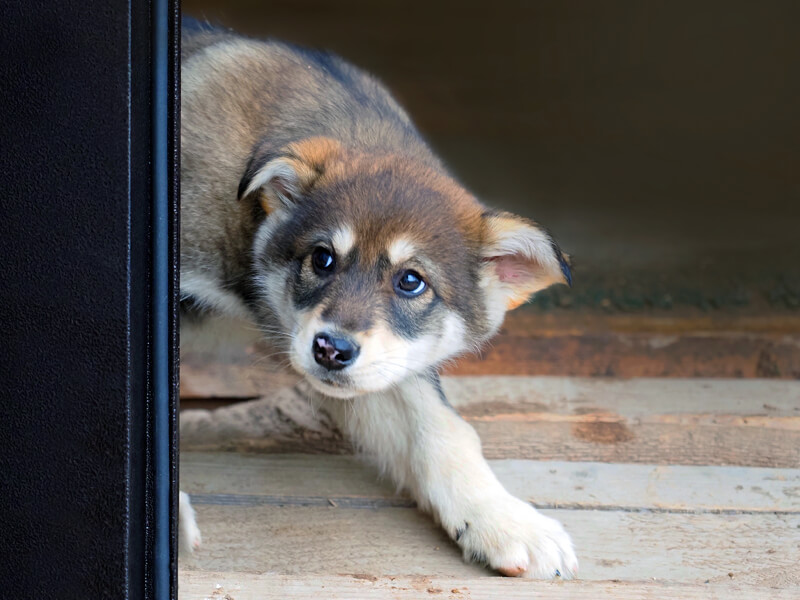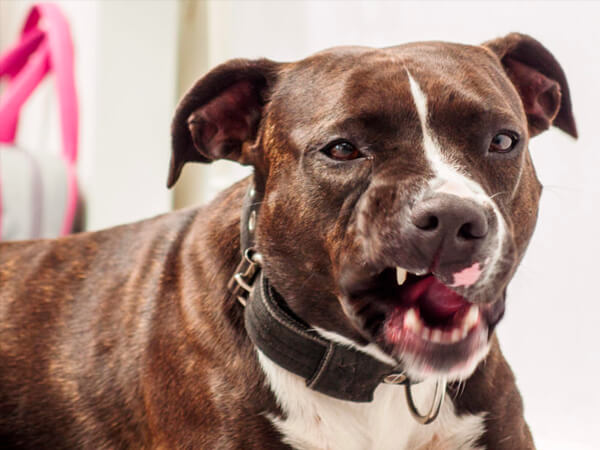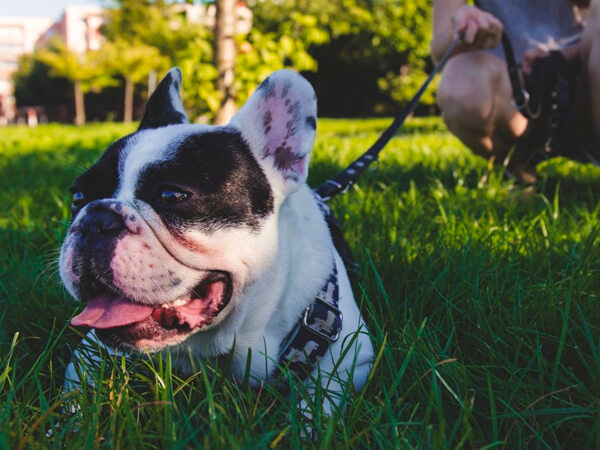Canine Social Anxiety
Canine social anxiety is a real problem for more dogs than you’d imagine. Therefore, if you have ever been asked to start your puppy on socialization, it is in part due to the debilitating effects of social anxiety. Dogs who were not socialized as puppies can have some degree of this anxiety. Anxiety is typically seen in a more devastating degree in dogs that have had no human contact. Dogs from puppy mills, or those with no human contact can have extreme social anxiety.

The Symptoms of Anxiety
Anxiety appears in dogs just like it does with humans. It can come from a fear of the unknown or even fear after a traumatic event. The source of anxiety is the same, no matter which circumstance he is under, and that source is terror. If your dog is experiencing social anxiety, then you will know based on his behavior.
Behaviors exhibited during a canine social anxiety attack could mean a total shut down of the dog’s emotions. This is similar to that of a human dissociating, or turning off their ability to function in reality. Basically, a dog having a total melt down with anxiety will hunker down to the ground, walk slowly, keep his tail tucked while refusing to acknowledge or obey you. This is because he is terrified. In these situation, your pup’s mind is shutting off to protect itself emotionally from becoming more traumatized.

Other anxiety symptoms can be excessive or constant whining, barking and even growling. Your dog, when faced with his trigger will do whatever he thinks he needs to do to protect himself. As such, he could lash out at you or simply shut down. This makes your job as his caretaker far more difficult.
Help Your Dog Cope with Canine Social Anxiety
Social anxiety in dogs is not something that can be trained out of him in a day, week or even a month. It is a fighting battle that can take many months or even years with consistent help and training. You can start your anxious dog down the path of healing his social anxiety with counter conditioning. This is the training tactic that helps change the way your dog feels about his trigger. If your dog was human, he would go to therapy. However, since he is your furry best friend he is relying on you to help him through this.
Don’t be afraid or wait to contact a professional dog trainer or animal behaviorist for help. Sometimes, dogs just need time and patience while other times they have real work in front of them that requires professional help. When it doubt about canine social anxiety, always ask a professional! Meanwhile, you can start by giving your dog a high value food treat whenever he sees his trigger. This may, however, only work for dogs who’s anxiety is not very severe. If your dog’s anxiety is so dire that he shuts down, you will need to start small and in a space he is comfortable and familiar with. Never punish a dog for anxiety, no matter how frustrated you get. Remember, he is terrified! If he shuts down, take the rest of the day off. Let him then settle in the most comfortable place he knows.
Train with Kindness, Not Punishment
While some may encourage you to punish a scared dog, in reality it only makes your dog’s behaviors worse. It can even lead to him lashing out and biting you or someone else. Instead, take it slow and stay within his threshold. If you don’t push him, he will gain more confidence. Then, he will let you know when it’s time to take the next step.

Doggy Therapy
For canine social anxiety, you are your dog’s helper. He cannot call a dog trainer nor ask for your help. He does not know why he feels the way he does, and he is counting on you to help solve his problems. Do your anxious dog a favor and go slow. Always provide praise and positive reinforcement for good behavior. And never give your dog a reason to be anxious!
For More Information
If you have questions about this topic or general questions about pet care, you can contact Kara Jenkins, Owner of TLC House & Pet Sitting. We are also available by email at info@tlcpetsitter.com. View more of our articles on pets here.
If you have questions about this topic or general questions about pet care, you can contact Kara Jenkins, Owner of TLC House & Pet Sitting. We are also available by email at info@tlcpetsitter.com. View more of our articles on pets here.
